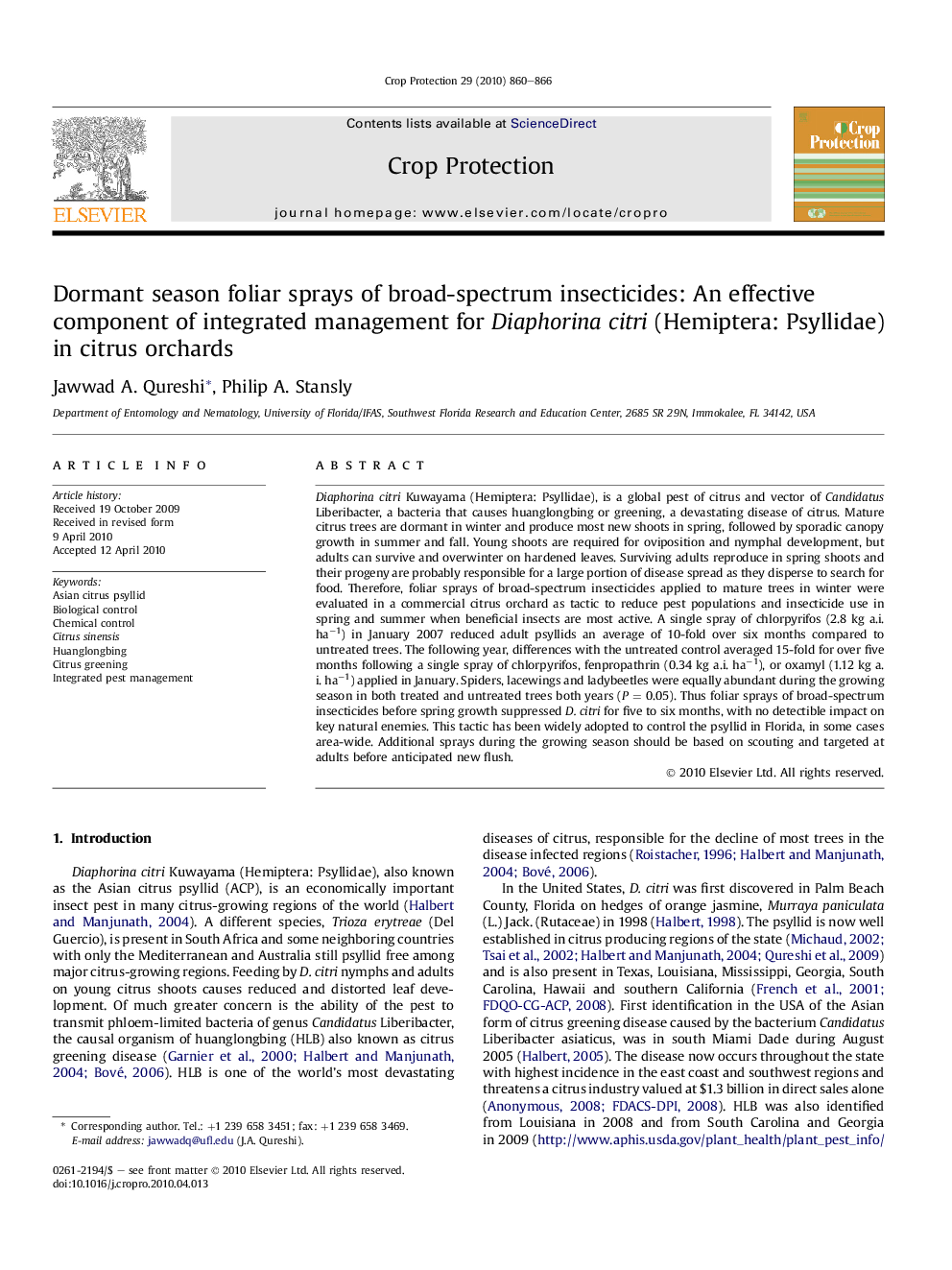| کد مقاله | کد نشریه | سال انتشار | مقاله انگلیسی | نسخه تمام متن |
|---|---|---|---|---|
| 4506741 | 1321327 | 2010 | 7 صفحه PDF | دانلود رایگان |

Diaphorina citri Kuwayama (Hemiptera: Psyllidae), is a global pest of citrus and vector of Candidatus Liberibacter, a bacteria that causes huanglongbing or greening, a devastating disease of citrus. Mature citrus trees are dormant in winter and produce most new shoots in spring, followed by sporadic canopy growth in summer and fall. Young shoots are required for oviposition and nymphal development, but adults can survive and overwinter on hardened leaves. Surviving adults reproduce in spring shoots and their progeny are probably responsible for a large portion of disease spread as they disperse to search for food. Therefore, foliar sprays of broad-spectrum insecticides applied to mature trees in winter were evaluated in a commercial citrus orchard as tactic to reduce pest populations and insecticide use in spring and summer when beneficial insects are most active. A single spray of chlorpyrifos (2.8 kg a.i. ha−1) in January 2007 reduced adult psyllids an average of 10-fold over six months compared to untreated trees. The following year, differences with the untreated control averaged 15-fold for over five months following a single spray of chlorpyrifos, fenpropathrin (0.34 kg a.i. ha−1), or oxamyl (1.12 kg a.i. ha−1) applied in January. Spiders, lacewings and ladybeetles were equally abundant during the growing season in both treated and untreated trees both years (P = 0.05). Thus foliar sprays of broad-spectrum insecticides before spring growth suppressed D. citri for five to six months, with no detectible impact on key natural enemies. This tactic has been widely adopted to control the psyllid in Florida, in some cases area-wide. Additional sprays during the growing season should be based on scouting and targeted at adults before anticipated new flush.
Journal: Crop Protection - Volume 29, Issue 8, August 2010, Pages 860–866